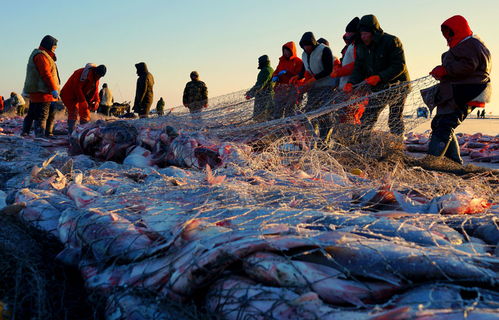Content:
In the vast and mysterious ocean, the white whale, known for its majestic beauty and enigmatic nature, has long been a dream catch for many anglers. However, catching a white whale is no small feat, and it requires a unique set of skills and techniques. This article aims to provide female anglers with some essential tips and strategies to increase their chances of reeling in this magnificent creature.
Understanding the White Whale
Before diving into the fishing techniques, it's crucial to have a basic understanding of the white whale. Also known as the humpback whale, these marine mammals are known for their long, arching dives, powerful tails, and the dramatic breaches they make as they leap out of the water. They are found in various parts of the world, including the Pacific, Atlantic, and Indian Oceans.
Choosing the Right Gear

The first step in fishing for white whales is to ensure you have the right gear. Here are some essential items:
High-Quality Rod and Reel: A sturdy rod and reel are essential for handling the powerful pull of a white whale. Look for a rod with a strong backbone and a reel capable of handling heavy-duty lines.
Heavy Duty Line: White whales are strong and can break thin lines. Opt for a high-test monofilament line or a braided line that can withstand the pressure.
Large Hooks: Since white whales are large, use large hooks to ensure a secure bite. J-hooks or circle hooks are popular choices.
Bait: White whales are primarily filter feeders, but they have been known to take fish. Live bait such as herring, mackerel, or sardines can be effective.
Tackle Box: Carry a variety of tackle, including different sizes of hooks, swivels, sinkers, and leaders.
Techniques for Catching White Whales
Research and Location: Before setting out, research the migration patterns of white whales. They are most commonly found in coastal waters during the summer months. Look for areas with a history of sightings or known feeding grounds.
Patience is Key: White whales are not easily caught. Patience is crucial. Spend time observing the behavior of the whales and look for signs of feeding or curiosity.
Timing: Early morning or late afternoon are often the best times to fish for white whales. These are when the whales are most active and feeding.
Approach with Care: When approaching a whale, move slowly and cautiously. Avoid startling the animal, as sudden movements can cause them to flee.
Cast with Precision: When casting, aim for the area where the whale is feeding or moving. Be prepared for a long cast, as white whales can be quite distant.
Landing the Fish: Once you've hooked a white whale, be prepared for a strong fight. Use a rod with a strong backbone and maintain pressure on the line. Be patient and avoid reeling in too quickly, as this can lead to a break-off.
Release with Respect: If you catch a white whale, it's important to release it with care. Handle the animal gently and ensure it's able to swim away safely.
Safety and Etiquette
When fishing for white whales, safety and etiquette are paramount:
Respect the Wildlife: Always approach wildlife with respect and avoid causing harm. Remember that white whales are protected species.
Stay Informed: Keep up-to-date with local regulations and guidelines for fishing and interacting with marine life.
Safety First: Always fish with a partner or in a group. Carry safety equipment, such as a first aid kit, a whistle, and a VHF radio.
Leave No Trace: Clean up after yourself and avoid leaving any litter behind.
Conclusion
Fishing for white whales is an exhilarating and challenging endeavor that requires patience, skill, and respect for the ocean's wildlife. By following these tips and techniques, female anglers can increase their chances of catching this majestic creature while ensuring the safety and well-being of both themselves and the marine environment. So, grab your gear, embark on an adventure, and who knows, you might just have the catch of a lifetime!












